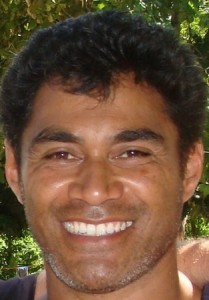Researchers must ensure that the research process should be equal and balanced in the exchange and interaction of gifts, goods and services (HRC, 2004). For instance, researchers could provide opportunities for the participants to increase their knowledge about a subject being researched. Reimbursing the costs of participation in research is another example of demonstrating reciprocity, such as a monetary offering or gift in kind (Filipo, 2004). Another gesture of goodwill could include returning the results of the research to the participants (Anae et al., 2001; Ofa et al., 2008; Sanga, 2004; Steinhauer, 2002). As HRC (2004) states:
“Dissemination should involve the same degree of attention and care that has been taken to extract the information from participants” (p. 27).
It is vital that participant stories or narratives including case studies published on the public domain should be approved first by the participants regardless of whether a consent form has been signed. This will ensure the stories are used respectfully, appropriately and meaningfully. Also, the gesture could strengthen the relationship between the researcher and the Pasifika community.
References
Anae, M., Coxon., M., Wendt-Samu, T., & Finau, C. (2001). Pasifika education research guidelines final report. New Zealand: Ministry of Education.
Filipo, S. (2004). In search of a culturally appropriate approach to research: A Samoan case. In T. Baba, O. Mahina, N. Williams, & U. Nabobo-Baba, (Eds.), Researching the Pacific and Indigenous peoples (pp. 179-185). Auckland, New Zealand: The University of Auckland; Centre for Pacific Studies.
Health Research Council of New Zealand. (2004). Guidelines on Pacific health research (2nd ed.). Auckland, New Zealand: Health Research Council of New Zealand.
Ofa Makasiale, C., Patterson, S., Silipa, N., Tupou, F., Agee, N., & Culbertson.(2008). Voicing the unspoken: Breaking through the barriers of mainstream institutionalized deafness to Pacific therapeutic practices. Hamilton: Maori and Psychology Research Unit.
Sanga, K. (2004). Making philosophical sense of indigenous Pacific research. In T. Baba, O. Mahina, N. Williams & U. Nabobo-Baba (Eds.), Researching the Pacific and indigenous peoples. (pp. 41-52). Auckland, The University of Auckland: Centre for Pacific Studies.
Steinhauer, E. (2002). Thoughts on an indigenous research methodology. Canadian Journal of Native Education, 26(2), 69-81.

